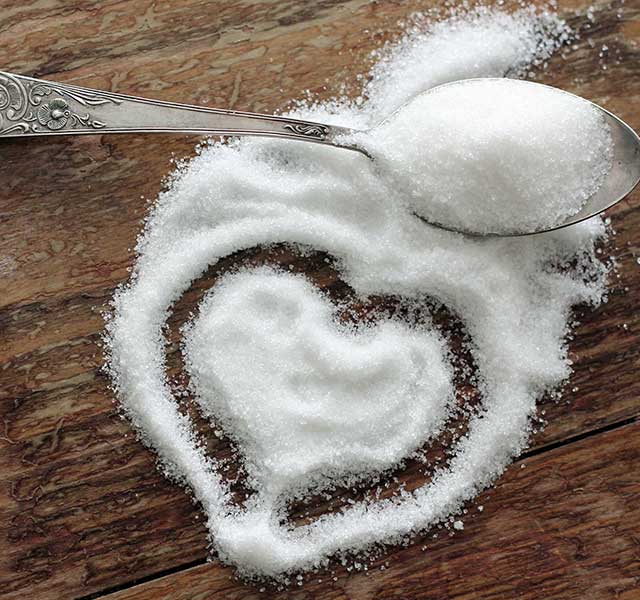If you’re trying to eat heart healthy, you probably know to stay away from the salt shaker. The same goes for deep fried foods. The connection between cardiovascular health and a diet that is high in sodium and saturated fat has been established in both health research and our public consciousness.
The amount of sugar you consume in your diet is not as commonly considered harmful to your heart. However, it might be best to go easy on the sweets as we now know that there is a strong link between your sugar consumption and heart disease risk.
“Added or refined sugars, known as simple carbohydrates, are broken down quickly by the body and cause a spike in blood sugar,” says Sherene Hudgins, RDN, a registered dietitian with Henry Ford Health. “This spike causes the body to release the fat storage hormone insulin. The more refined sugars you eat, the more insulin your body releases and the greater your risk of obesity – and in turn, cardiovascular disease.”
A study in the JAMA Internal Medicine determined that consuming large amounts of sugar increases your risk of dying from heart disease even if you aren't overweight. Sugar also increases the likelihood of developing diabetes, prevents triglycerides (a type of blood fat associated with cardiovascular disease) from being broken down and lowers the level of HDL cholesterol – the “good” cholesterol – in the body while raising LDL (“bad”) cholesterol levels.
“Many people who recognize that sodium and saturated fats are culprits of cardiovascular disease turn to low-fat products as an alternative," Hudgins says. "Unfortunately, many low-fat products replace that fat with sugars or sugar alcohols which we know isn't helping people either, because obesity and heart disease rates have continued to rise."
The Limit on Sugar Consumption
Refined sugars are found in all of your favorite sweet treats – from ice cream and cookies to cakes and candies. They’re also in soda, many packaged goods and even in items you may not expect – like yogurt, condiments and salad dressing. This is why it’s crucial to look at labels.
The Food and Drug Administration (FDA) recommends added sugars should not take up more than 10% of your daily caloric intake based on a 2,000 calorie per day diet. Per day, women should not consume more than 24 grams of sugar (6 teaspoons). For men, that number is 36 grams (9 teaspoons).
To better visualize this, Hudgins recommends that when looking at food labels, keep this in mind that just 4 grams of added sugar is equal to 1 teaspoon.
It’s important to note that natural sugars found in vegetables, fruits and complex carbohydrates are better choices for your health. Not only do these foods help regulate blood sugar, but they are high in dietary fiber which actually removes cholesterol from the bloodstream.
Decreasing Sugar Intake

Sugar is a powerful substance. It’s often the root of food cravings, and tough to avoid – especially at social outings and celebrations. But it’s important to limit your intake of this harmful substance.
“We get addicted to sugar, and even fat, because the foods that contain these items are pleasurable to eat,” Hudgins says.
Here are a couple of ways to kick your sugar consumption to the curb:
- Don’t keep sugar-laden foods in the house.
- Replace sugary drinks like soda with carbonated water with a squeeze of lemon or splash of fruit juice.
- Keep healthy treats readily available. Fresh fruit is a good example. For a frozen treat, try freezing grapes or making your own frozen banana pops.
With self-discipline, overcoming the urge to eat sugar gets easier with time, Hudgins says. Our taste buds replace themselves about every two weeks, and you may find you start to crave it less. And when you do eat sugar, it may taste much sweeter than what you once thought.
Reviewed by Sherene Hudgins, a registered dietitian for Preventive Cardiology and the Clinical Weight Management Program at Henry Ford Health.



